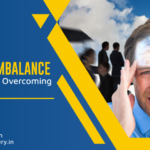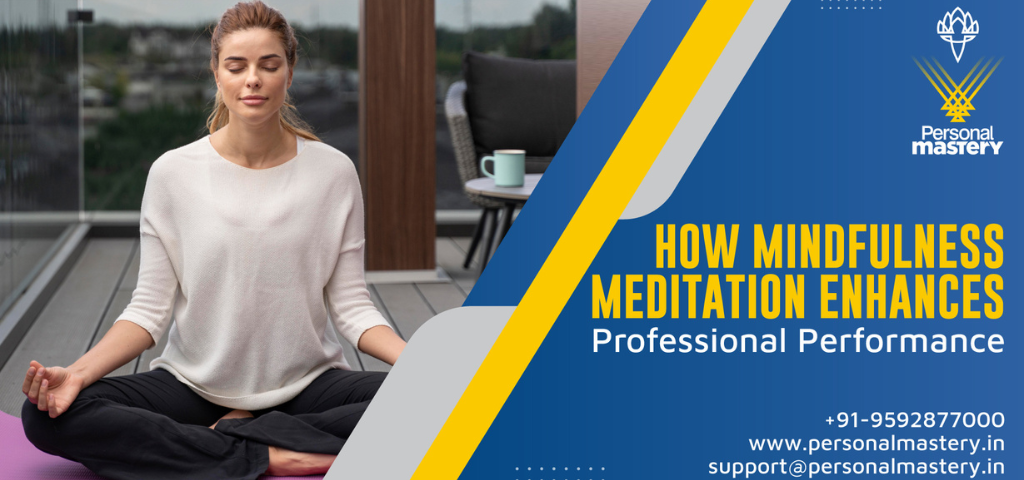
Emotional Imbalance: Understanding and Overcoming Challenges
December 27, 2024
Lack of Motivation or Direction: How NLP Can Help You Overcome It
January 8, 2025The ever-changing professional world is a high-pace environment, where the achievement of productivity, focus, and balance mode is the main thing. It is never easy to avoid the psychological pressure in such a situation when the deadlines are coming up very fast, the meetings continue, notifications are sent, and the clocks never stop ticking them. However, in the middle of it all, the age-long practice of meditation, with its calming and clear appeal, provided people with a way out.
Art in the form of meditative practice based on desk improvisation witnesses not only continuation of its growth but also remains relevant in various business and any other sector. When practiced, it not only leads to emotional well-being but also performance at a higher level, decision-making of a better nature, and skill development for leadership. Using the knowledge of this breakthrough trend, this article will show you how your career can go up.
1. Increased Focus and Concentration
Troubles in the way of performance occur as a direct result of intelligence and low-speed internet at the time of the workday. Mindfulness is a process that occurs when the mind starts to focus on the current moment; for this very reason, professionals can allocate their attention to a single task which is hard for other people to do.
Accordingly, mindfulness basics probably will affect perception in some way to make you:
- Decrease inaccuracies: When mental clarity and focused attention are established, there is almost no room for making errors.
- Shorten tasks and effort: It appears that the total concentration on the job reduces the time and the effort needed.
- Stay adaptable: Through a non-judging state of consciousness thoughts, priorities can be re-determined as necessary.
Like, when you go to present a really symmetrical project, as an alternative to succumbing to your anxiety, mindfulness meditation practice could get you to become more relaxed and focused so that you will be able to deliver a completely precise, highly-organized, and dynamic presentation.
2. Enhanced Emotional Regulation
Reading the mind is done by establishing a high-grade of emotions in a situation of dealing with a hard-nosed client, negotiations, or team dynamics. Importantly as a part of the building of professional relationships and decision-making, it is necessary to master the emotional regulation skills that will make Encourage the professionalism in relations and decision-making.
Through mindfulness, you learn to:
- Take a minute before reacting.
- Receive feedback constructively without defensiveness.
- Manage stress calmly in high-pressure situations.
Mindfulness meditation builds emotional resilience for harmonious workplace relations and problem-solving.
3. Improved Decision-Making
Effective decision-making itself has helped lead toward professional success. In some situations, stress and pressure cloud one’s ability to judge matters and lead them to make hasty or absent-minded choices. The mindfulness certification online program deals with the technology of objectively observing thoughts and feelings. This way, decisions may be made based on logic and not impulse.
Mindful decision-makers excel at:
- Weighing options carefully
- Considering long-term outcomes
- Staying aligned with organizational goals
As a leader, applying mindfulness principles ensures you remain grounded, making decisions that benefit both your team and the organization.
4. Stress Reduction and Mental Clarity
Stress, very much a part of the workplace, shouldn’t take a toll on performance. Mindfulness meditation has been scientifically proven to lower the level of cortisol, the stress drug, while promoting relaxation.
Among other things, regular mindfulness practice can help you:
- Manage your workload more effectively without busting
- Prevent burnout with self-care
- Tackle challenges with clarity and creativity
Manage your workload more effectively without busting, Prevent burnout with self-care, Tackle challenges with clarity and creativity.
5. Cultivation of Mindful Leadership
Leadership is about more than just task delegation; it’s about inspiring others to create a good work climate. Mindfulness and emotional regulation skills are invaluable to a leader who wishes to empower a team.
Mindful leaders embody:
- Empathy towards team members
- Clear communication and conflict resolution strategy
- Creativity and collaboration
Programs such as Mindfulness Meditation Master Practitioner & Facilitator teach meditation leadership training to give the skills necessary for counseling a team toward purpose and vision.
6. Boosted Creativity and Problem-Solving
Creativity needs unfettered mental space. Mindfulness meditation permits stronger cognitive flexibility on the job, allowing professionals to view challenges from a fresh perspective.
Some skills that are taught include:
- Brainstorming solutions to problems
- Connecting ideas that seemed disconnected in thought
- Dynamic adaptation of strategies
By clearing mental noise, mindfulness Encourages an environment where creativity can flourish, benefiting professionals in roles ranging from marketing to technology.
7. Improved Physical Health and Energy
The physical state of a worker is one of the prerequisites to his professional performance. The stress hence is shown on the outside of the body as fatigue, headaches, or a weakened immune system. Mindfulness is a method of integrating oneself and supports the body as much as it does the mind.
Benefits include:
- Better sleep quality will enhance your focus.
- Lowered blood pressure will reduce health risks.
- Increased energy to keep you productive throughout the day.
Mindfulness online certification programs have been reputed by the professionals participating in them as doing good for their overall health and well-being.
8. Strengthened Workplace Relationships
Collaboration is generally the key to workplace success. Mindfulness promotes active listening, empathic engagement, and non-judgmental communications-all very important skills for establishing trust and rapport with coworkers.
Following a period of mastering stress-ameliorating mindfulness techniques, workers are able to:
- Solve conflicts effectively
- Empower ties with peers
- Provide a safety net for work culture
With mutual respect and understanding practiced, teams are more often than not guaranteed collective success.
9. Mindful Time Management
Time is limited, and consistently managing time can be a challenge. Mindfulness meditation enables you to focus on the particulars first and to differentiate between what is urgent and what is important. When you remain in the here and now:
- Helps you use your time effectively
- Helps you avoid procrastination and distractions
- Focuses on meaningful work
Certain techniques taught in certified mindfulness teacher training courses give you a chance to spend your day mindfully, thereby maximizing productivity.
10. Greater Job Satisfaction and Fulfillment
Every professional journey springs from a desire for meaning and satisfaction. Mindfulness meditates that deeper relationship with work to derive pleasure and enjoyment even from mundane, routine tasks.
Participants of the Mindfulness Meditation Master Practitioner & Facilitator course are often left with such opinions:
- Renewed vigor for their jobs.
- Alignment with personal values.
- Increased resiliency for career challenges.
Bringing mindfulness into your career not only enhances performance but also lays the groundwork for having a more satisfying career.
Conclusion
The impact of mindfulness meditation on professional performance is profound and far-reaching-from improved focus and emotional control, to leadership and strong creativity. The benefits reach into all aspects of your career. Whether you are a seasoned executive or just graduated from college, learning mindfulness can fully unlock your potential.
This class-aiding in skills ranging from meditation leadership to practical methods, and most importantly international certification-all this will help you establish a grounding presence in the world of which you are part. The change starts with you! Invest in mindfulness today, and see the effect that clarity, calm, and success can ripple down through your life.
FAQs
- What is mindfulness meditation, and how can it improve professional performance?
Mindfulness meditation is a practice that involves focusing on the present moment with awareness and without judgment. It helps professionals enhance performance by improving focus, reducing stress, increasing emotional intelligence, and Encourageing better decision-making skills. - How much time should I dedicate to mindfulness meditation daily to see results in my work performance?
Starting with just 10–15 minutes a day can yield noticeable benefits. As you become more comfortable with the practice, gradually increasing your time to 30 minutes or more can lead to even greater improvements in focus, creativity, and productivity. - Can mindfulness meditation help with workplace stress and anxiety?
Yes, mindfulness meditation is a proven method for managing stress and anxiety. By helping you stay present and respond calmly to challenges, it reduces feelings of overwhelm and improves resilience in high-pressure situations. - Is mindfulness meditation suitable for busy professionals with tight schedules?
Absolutely! Mindfulness meditation can be tailored to fit any schedule. Even brief practices, such as mindful breathing or a short body scan during a coffee break, can have significant positive effects on your mental clarity and stress levels. - What specific mindfulness techniques are most effective for improving focus and productivity at work?
Techniques like mindful breathing, body scans, and focused attention meditations are particularly effective. Additionally, incorporating mindfulness into everyday activities, such as mindful listening during meetings or taking mindful pauses before making decisions, can enhance focus and productivity.


